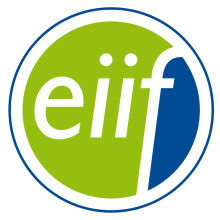On 1 March 2021, EiiF published its brand new study "The insulation contribution to decarbonise industry".
The study is based on the findings from about 2.500 thermal energy audits, so called TIPCHECKs (Technical Insulation Performance Checks - www.eiif.org/tipcheck), and detailed energy data provided by Enerdata’s “Global Energy and CO2 Data” and the Odyssee-Mure EU Project. Furthermore, the study builds on the methodology created by Ecofys in 2012 for its study “Climate protection with rapid payback”.
The main findings of the EiiF Study 2021:
Insulation specifications in industry are outdated
The analysis of the 2.500 TIPCHECKs shows that most insulation systems in industry today are neither economical nor energy efficient. EiiF analyses that several factors contribute to the tendency in industry to insulate less rather than implement more energy-efficient insulation systems: the pressure to reduce investment and maintenance costs, an increasing lack of insulation knowhow and split responsibilities for energy and maintenance budgets. As a consequence, the energy efficiency level of insulation in Europe’s industrial installations today is relatively low. Moreover, many plants in Europe are aging and in a dire need for insulation repair.
All technical installations inspected offered attractive energy and CO2 savings potential
The biggest part of the growing – but with energy-efficient insulation easily avoidable – carbon emissions in industry comes from uninsulated equipment or equipment which has damaged insulation. Of the approximately 2.500 plants and technical installations (1,870 in buildings, 571 in industry) inspected over the past 10 years and mainly in Europe, there was not one that did not have potential for savings. This wasteful practice leads to the avoidable, large heat losses described above and thus to the high and unnecessary greenhouse gas emissions analysed by this study.
EiiF President Peter Hoedemaker explains:
Upgrading insulation systems to energy efficient levels adds value and offers multiple benefits not only for our climate but also to Europe and the European industry
- Society and the climate will benefit from reduced annual greenhouse gas emissions
by 40 Mt and annual energy savings in industry of 14 Mtoe. (See analysis – page 35 ff.) - Plant operators and asset owners will reduce their energy consumption and increasing share of CO2 costs and thus their production costs. (See Case Studies – page 87 ff.)
- Policymakers have the chance to create a practical framework for increased energy efficiency in industry by setting minimum requirements for technical insulation systems to accelerate the uptake of the insulation savings potential. (See recommendations – page 49 ff.)
The EiiF Study 2021 can be downloaded for free from www.eiif.org/publications.



